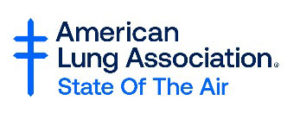via Radio Iowa:
Iowa ranks well in the latest “State of the Air” report being released by the American Lung Association.
The 21st annual report card tracks exposure in communities nationwide to unhealthy levels of ozone and particle pollution. Angela Tin, the association’s national senior director, says those problems become more prevalent in states like Iowa during the heat of summer and people should respond accordingly.
“When there’s a lot of pollution, when there’s a lot of heat, when there’s a lot of traffic, we need to do other things, to use alternative fuels and alternative technologies, like electric cars or propane or ethanol or biodiesel,” Tin says, “or even use mass transit during those hot days of summer.”
Of the ten Iowa counties studied for unhealthy ozone levels, seven received A grades while three got Bs. Also, 14 Iowa counties were graded for particle pollution and of those, eight were awarded As and six got Bs. None of the Iowa counties that took part ranked below a B in either category. It’s an annual report and this year’s edition compared the years 2016 through 2018.
“It’s important to look at the overall trends,” Tin says. “It may go up a little bit one year, it may go down a little bit one year, but if you look at five- and ten-year trends, we are seeing some improvements because our cars are cleaner and our fuels are cleaner and we have alternative sources of transportation, like electric vehicles.”
Studies of transportation trends in Iowa over the last several weeks show traffic is down about 40% statewide due to the COVID-19 pandemic. In future “State of the Air” reports, Tin says there will be a significant change shown during these months, with school canceled and many people staying home.
“It will look a lot different but it’ll be an instantaneous value where the numbers will come down and the monitors will reflect that the numbers go down,” Tin says. “And it’s not just the air monitors, the waters are a lot cleaner, too, because we’re not having transportation on the lakes and the rivers.”
This year marks the 50th anniversary of the Clean Air Act, which Tin says has driven dramatic improvements in air quality.







